
Merck Anti-Collagen, Type X antibody, Mouse monoclonal
✨AI 추천 연관 상품
AI가 분석한 이 상품과 연관된 추천 상품들을 확인해보세요
연관 상품을 찾고 있습니다...
Anti-Collagen, Type X antibody, Mouse monoclonal
clone COL-10, purified from hybridoma cell culture
Anti-COL10A1
생물학적 소스
mouse
항체 형태
purified from hybridoma cell culture
antibody product type
primary antibodies
클론
COL-10, monoclonal
form
buffered aqueous solution
분자량
~60 kDa
species reactivity
deer, porcine, human
포장
antibody small pack of 25 μL
농도
~1 mg/mL
technique(s)
immunoblotting: suitable
immunofluorescence: 5-10 μg/mL using human osteosarcoma SaOS-2 cells
immunohistochemistry: suitable
동형
IgM
UniProt 수납 번호
배송 상태
dry ice
저장 온도
−20°C
The extracellular matrix (ECM) found in the extracellular environment of all tissues and organs, provides the physical microenvironment for cells and a substrate for cell anchorage. It serves as a tissue scaffold and is a dynamic structure whose organization and composition modulate various cellular processes including cell proliferation, attachment, migration, differentiation and survival. The composition of the extracellular framework of all vertebrates is dominated by a Collagen protein family, each member with unique features suited for its function and location.
Type X collagen,also known as Collagen alpha-1(X) chain (COL10A1), is a product of hypertrophic chondrocytes. It shares a similar domain structure with type VIII collagen. In addition, both collagen types represent major components of hexagonal lattice structure, in which the collagen molecules link together by interactions involving the non-triple-helical end regions. Despite these similarities, a distinct tissue distribution has been found for these two molecules: type VIII collagen is distributed in various tissues, whereas type X is restricted to normal fetal hypertrophic cartilage in the growth zones of long bones, vertebrae and ribs and in adult (> 21 yr) thyroid cartilage. It is also found in bone fracture callus, osteoarthritic cartilage and chondrogenic neoplasms, and may be involved in cartilage mineralization. Type X collagen is non-fibrillar, but forms fine pericellular filaments in association with cartilage collagen. It interacts with matrix proteins, such as connexin V, chondrocalcein, collagen II and proteoglycans, as well as with Ca2+ . Mutations in this gene are associated with schmid metaphyseal chondroplasia (MCDS).
The development of antibodies against collagens has provided a powerful method for examining the distribution of these connective tissue proteins and for investigation of epithelial-mesenchymal interactions, tumorigenesis and basement membrane biology in ontogeny and epithelial differentiation.8 Antibodies that react specifically with collagen type X are useful for the study of specific differential tissue expression and the localization of collagen type X.
🏷️Merck Sigma 상품 둘러보기
동일 브랜드의 다른 상품들을 확인해보세요
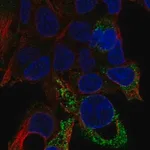
Merck Sigma
Merck Anti-D2HGDH antibody produced in rabbit
370,530원
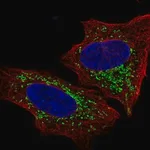
Merck Sigma
Merck Anti-S1PR4 antibody produced in rabbit
370,530원
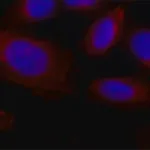
Merck Sigma
Merck Anti-Collagen, Type X antibody, Mouse monoclonal
320,000원
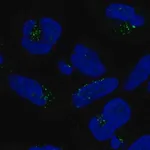
Merck Sigma
Merck Anti-DPH5 antibody produced in rabbit
370,530원
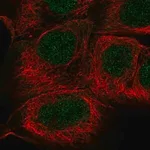
Merck Sigma
Merck Anti-SGPP1 antibody produced in rabbit
370,530원
배송/결제/교환/반품 안내
배송 정보
| 기본 배송비 |
| 교환/반품 배송비 |
|
|---|---|---|---|
| 착불 배송비 |
| ||
| 교환/반품 배송비 |
| ||
결제 및 환불 안내
| 결제수단 |
|
|---|---|
| 취소 |
|
| 반품 |
|
| 환급 |
|
교환 및 반품 접수
| 교환 및 반품 접수 기한 |
|
|---|---|
| 교환 및 반품 접수가 가능한 경우 |
|
| 교환 및 반품 접수가 불가능한 경우 |
|
교환 및 반품 신청
| 교환 절차 |
|
|---|---|
| 반품 절차 |
|
